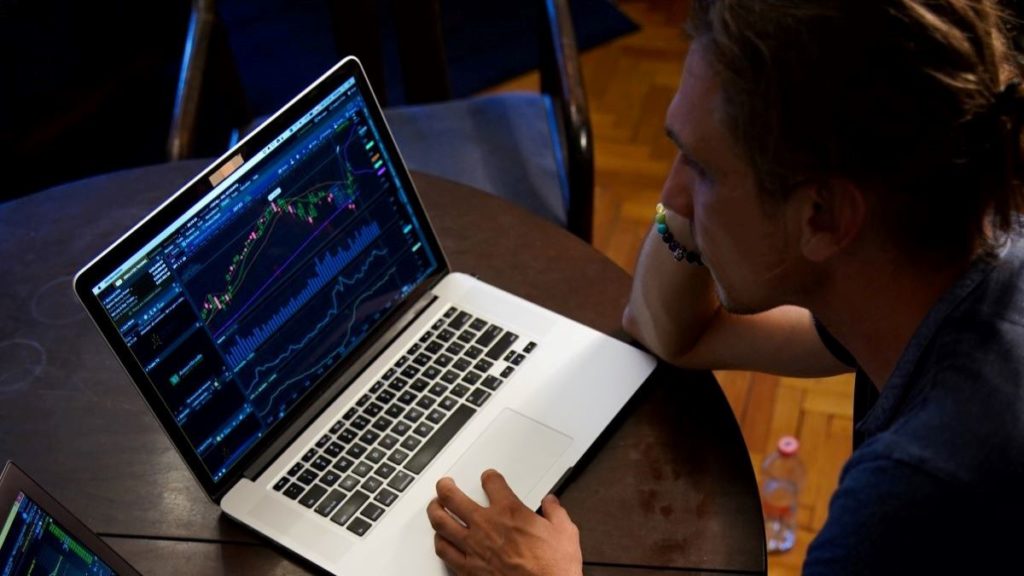Featured image by Adam Nowakowski on Unsplash
Take a look at the rock start forex traders you know of. What do they all have in common? For one thing, they’re good at managing their emotions while they’re trading.
RELATED ARTICLE: HOLIDAY BLUES? HERE ARE SOME WAYS TO COPE
While trading on the foreign exchange, or forex, market, managing your emotions is key. This is because letting your feelings make your decisions for you can ruin your forex trading career.
Experienced professionals can handle the negative vibes and related issues that come with forex and even options trading. However, the situation can be a little tough for beginners to handle because they’re still learning about the industry.
But even having a lot of knowledge about the forex market doesn’t mean you will earn consistent profits from every trade. So the first thing every expert recommends to beginners is that they learn to manage their emotions. Developing this skill and learning about the psychology behind it can make trading less stressful for newbies.
You will learn about many different trading strategies as you deepen your forex trading skills. However, your core concern, at least at first, will be learning to manage your emotions.
How to Manage Your Emotions While Forex trading
1. Never Manage Your Trading for Earning Big Profits Because of Your Emotions
Many newbies come into this industry for the sake of earning a large amount of money. These people take higher risks and increase their position size. Greater position size indicates the profit or loss per pip movement. Newbies who run after earning larger profits are considered greedy, and this is one reason why they create a stressful situation for themselves. Professionals don’t trade to earn a lot of money in a single trade. They start dealing with increasing their efficacy and learning.
The elite Singaporean traders in the options trading industry never trade with high risk.
2. Keep in Mind That the Forex Market Is Volatile
The forex market is volatile. This is a bitter truth.
No matter how accurate your analyses are, no matter how well you learn to use the technical and fundamental indicators, the forex market will have its wild fluctuations. This fact alone is reason enough to learn to manage your emotions.
Your trading decisions may be completely sound, but the market could still go against your luck, collapsing your entire investment. This is why every trader should prepare for the worst. Multiple factors come into play: inflation and deflation, countries’ GDPs, interest rates, political events and instability, unemployment rates, and so on.
For example, let’s say a newbie has analyzed the economic indicators nicely. He has done a beautiful job and checked off all the boxes. Based on his research, he has decided to sell a certain currency, hoping for a profit. But suddenly, the political landscape in that currency’s country becomes unstable overnight and the bottom falls out of the market. So what will that inexperienced trader do now?
3. Don’t Anticipate Your Profit
Our newbie trader above is guilty of anticipating his profit. Many novices do the same. They get excited. They get greedy. Some are quite sure they’re going make big profits.
However, it is almost impossible for beginners to earn a big profit on each trade. In order to accomplish that sort of earnings, a trader must acquire concrete knowledge about the industry and learn about price fluctuations, technical and fundamental indicators, and more.
4. Manage Your Position Size Based on Facts, Not Emotions
This is an important one. Many novices, riding high on the emotion of greed, increase their position or trade size and try to manage for greater risks before they’re ready to do so.
Position size, also known as volume or lot size, indicates the profit or loss an investor wants to take per pip movement. (“Pip” is short for “price interest point” or “percentage in point.” Traders measure the movement of the market in pips.)
For example, if a trader sets their lot size to 0.01, this means they will receive $10 in either profit or loss per pip movement, depending on which direction the market moves. If the trader increases that value to 0.1, this means they will receive $100 in either profit or loss per pip movement.
This is how trade or position size determines the risk. When the market moves in the investor’s favor, that trader will make a profit. On the other hand, if the price starts moving against them, that trader will lose as a consequence.
5. Manage Your Emotions and Stick to Your Original Plan
Making a plan and sticking to it, no matter what, is a good way to manage your emotions. Of course, you can modify your plan as you go along to make it more robust, but never place an order without following your already-set strategy. What’s more, always include in your planning a way to allow yourself to escape, in case the market turns against you.
Conclusion
These five suggestions can help you manage your emotions while you’re trading on the forex market. And when you manage your emotions while trading, you will be more successful.
